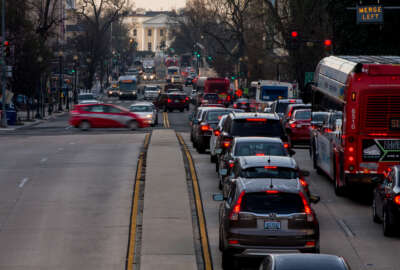

Readers share their thoughts on how commuter gridlock caused by a potential D.C. Metro system strike would affect agencies' opinions on telework.
Would a D.C. transit strike sending more than 1 million additional commuters in the rush hour traffic mix show politicians the value of teleworking? Would an otherwise paralyzing bus and subway shutdown put the spotlight on the value of having a large cadre of people who can and do work from home during an emergency?
It depends on who you ask, as reader Maureen Wilkin writes:
“I enjoyed your article today on the need for telework. Having been an agency telework coordinator during my career, I can tell you that this program has flaws and not all agencies run the program ‘by the book.’ There has always been room for improvement by agencies as well as teleworking employees.
“I’m sure you recall the U.S. Patent and Trademark Office program being caught with poor documentation and many problem situations, and [the Office of Personnel Management] had been touting that program as a model of excellence for other agencies to model.
“Your article included a remark about teleworking employees now being made to work even if their nonteleworking colleagues are excused for weather related incidents. That has always been a requirement for teleworking employees. It’s in the OPM telework guidance — the telework agreement that employees must have in place and sign to be approved for telework clearly states that as a requirement. Perhaps that language should be emphasized and participating employees reminded of the requirement, right?
“Thanks for keeping important issues in focus during the summer when things generally go on hold in D.C.!”
I also got this call from Dave C., who said: “Your gridlock-revives-telework scenario … could backfire, big time. The question which nobody can truly answer is how many of the dedicated teleworkers are actually putting in a full day of work?
“How many of us have known of … coworkers who use telework time for other personal chores and projects? Wouldn’t it be interesting if there was massive gridlock even for a short period of time when teleworkers didn’t save the day?”
By Amelia Brust
Nearly 70 percent of people experience hypnic jerks, or the sensation of falling when drifting off to sleep. No one knows exactly why, but one theory is that muscle tones shift as breathing and heart rate slow down and body temperature drops when sleep takes over. Another possible explanation is that, because the muscles are relaxing, the brain misinterprets this and signals them to tense up and protect a person from falling over.
Source: Sleep.org
Copyright © 2024 Federal News Network. All rights reserved. This website is not intended for users located within the European Economic Area.
Mike Causey is senior correspondent for Federal News Network and writes his daily Federal Report column on federal employees’ pay, benefits and retirement.
Follow @mcauseyWFED


